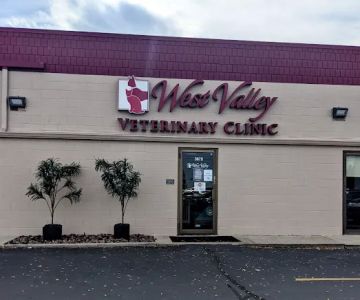How to Become a Veterinary Professional: A Comprehensive Guide
- 1. Understanding the Role of a Veterinarian
- 2. Educational Requirements to Become a Veterinary Professional
- 3. The Path to Veterinary School: What You Need to Know
- 4. Key Skills Every Aspiring Veterinarian Should Have
- 5. Gaining Hands-On Experience in Veterinary Care
- 6. The Role of Compassion in Veterinary Medicine
- 7. Understanding the Challenges of the Veterinary Profession
- 8. Opportunities for Specialization in Veterinary Medicine
- 9. The Importance of Continuing Education for Veterinarians
- 10. Why Veterinary Care Is a Rewarding Career Choice
1. Understanding the Role of a Veterinarian
Becoming a veterinary professional is more than just a career; it's a calling. Veterinarians play a crucial role in the health and well-being of animals, and their expertise helps save lives, reduce suffering, and enhance the quality of life for animals. As a veterinarian, you can work with pets, farm animals, exotic species, or even wildlife, providing medical care, surgery, and preventive treatments.
2. Educational Requirements to Become a Veterinary Professional
Before becoming a veterinarian, you must meet specific educational requirements. Most veterinary professionals start by earning a bachelor's degree, usually in a field like biology, animal science, or pre-veterinary studies. Afterward, you'll need to attend veterinary school, where you'll complete a program that takes four years to finish. Veterinary schools are highly competitive, and admission requires not only academic excellence but also experience in animal care and a passion for helping animals.
3. The Path to Veterinary School: What You Need to Know
The journey to veterinary school is rigorous and demands significant dedication. While each veterinary school may have slightly different requirements, all will expect you to have strong grades in science subjects such as biology, chemistry, and physics. Additionally, it’s important to gain as much hands-on experience as possible in animal care settings. Volunteering at animal shelters, internships, or working as a veterinary assistant can give you a competitive edge when applying to veterinary programs.
4. Key Skills Every Aspiring Veterinarian Should Have
To be successful as a veterinarian, you need a combination of hard and soft skills. Beyond technical knowledge of animal health, it's crucial to have strong communication skills to explain diagnoses and treatment plans to pet owners, compassion to deal with distressed animals and owners, and problem-solving skills to diagnose complex conditions. Veterinary professionals also need the ability to work under pressure and make quick decisions during emergencies.
5. Gaining Hands-On Experience in Veterinary Care
During your education, practical experience is vital. Whether it's through internships, externships, or volunteer work, gaining direct experience working with animals and observing professional veterinarians in action is invaluable. I remember volunteering at an animal clinic during my veterinary studies, where I not only learned clinical skills but also witnessed the deep emotional connection that vets share with their patients. This experience solidified my passion for the profession and gave me the practical knowledge I needed to succeed.
6. The Role of Compassion in Veterinary Medicine
Veterinary care is not just about performing medical procedures; it's also about showing compassion and empathy for animals and their owners. In my experience, one of the most fulfilling parts of being a veterinarian is helping owners navigate difficult situations, such as when their beloved pet is seriously ill or injured. Offering support and explaining options clearly to the pet owner is just as important as the medical care you provide. Compassion is the backbone of excellent veterinary care.
7. Understanding the Challenges of the Veterinary Profession
While being a veterinarian is a rewarding career, it comes with its own set of challenges. From long hours and physical demands to dealing with emotionally difficult situations, such as euthanasia, the profession can be mentally and physically taxing. However, these challenges also provide opportunities to grow, both personally and professionally. It's important to develop strong coping mechanisms and a support network to thrive in this field.
8. Opportunities for Specialization in Veterinary Medicine
Once you've completed your veterinary degree and gained experience, there are numerous opportunities for specialization. Some veterinarians focus on small animal care, while others specialize in large animals, equine, exotic species, or even wildlife. Within these broad categories, there are even more focused areas, such as dermatology, cardiology, or orthopedic surgery. Specializing allows you to focus on areas you're passionate about, and it can also open doors to higher salaries and job security.
9. The Importance of Continuing Education for Veterinarians
The field of veterinary medicine is constantly evolving, with new treatments, technologies, and research being introduced regularly. Continuing education is a must for veterinarians to stay up-to-date with the latest advancements. This can include attending conferences, taking specialized courses, or even pursuing additional certifications. I personally find that engaging with ongoing learning keeps the work exciting and ensures that I am providing the best possible care to my patients.
10. Why Veterinary Care Is a Rewarding Career Choice
Veterinary care is one of the most rewarding careers you can choose, not only because it allows you to help animals but also because of the deep connections you build with pet owners. It’s a profession where every day brings new challenges, opportunities to learn, and the chance to make a real difference in the lives of animals. If you're passionate about animals and dedicated to providing excellent care, becoming a veterinary professional could be one of the most fulfilling paths you take in your life.
If you're interested in learning more about the veterinary profession, check out Eye Docs for more resources and guidance on starting your career in veterinary care!











